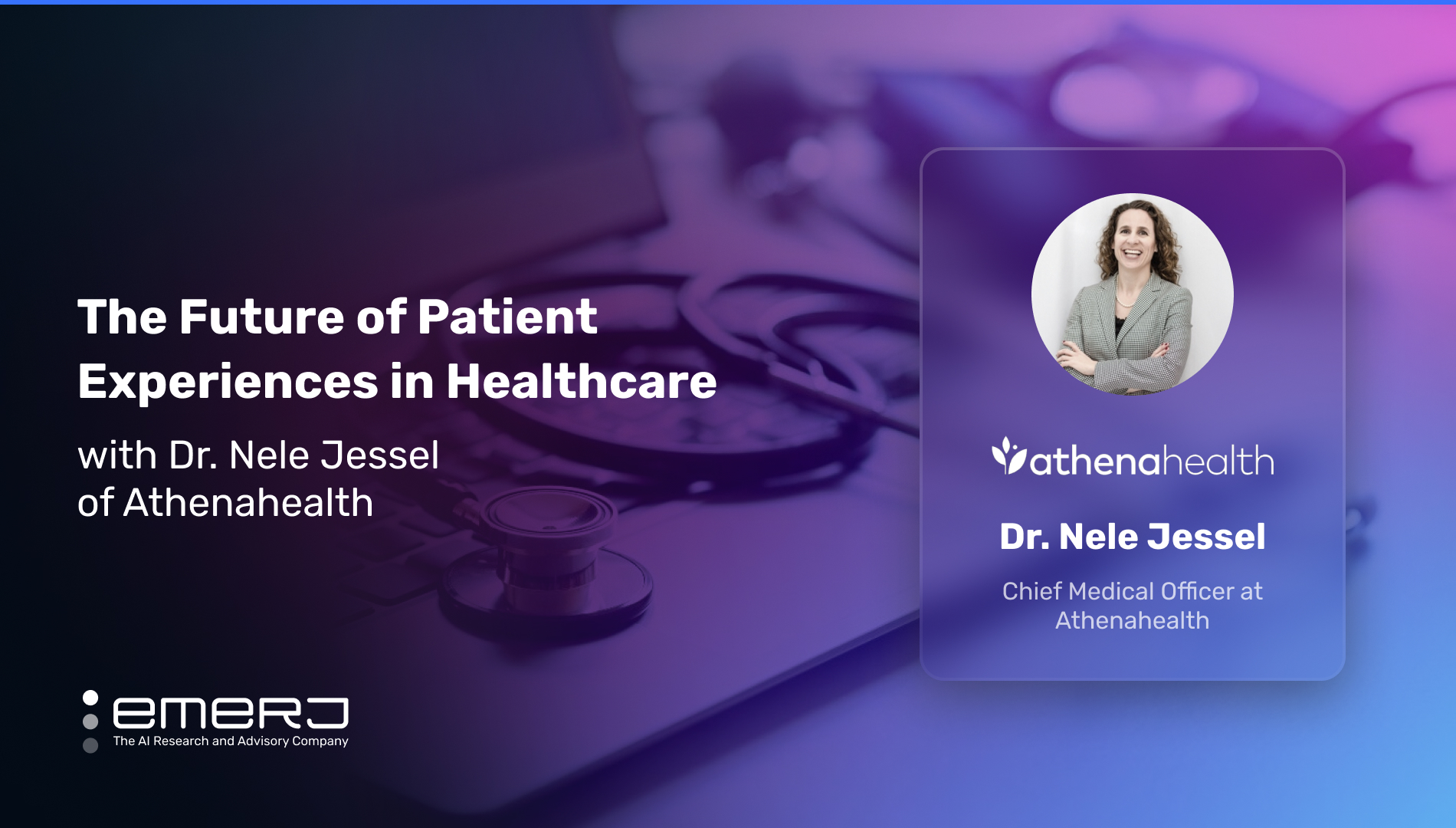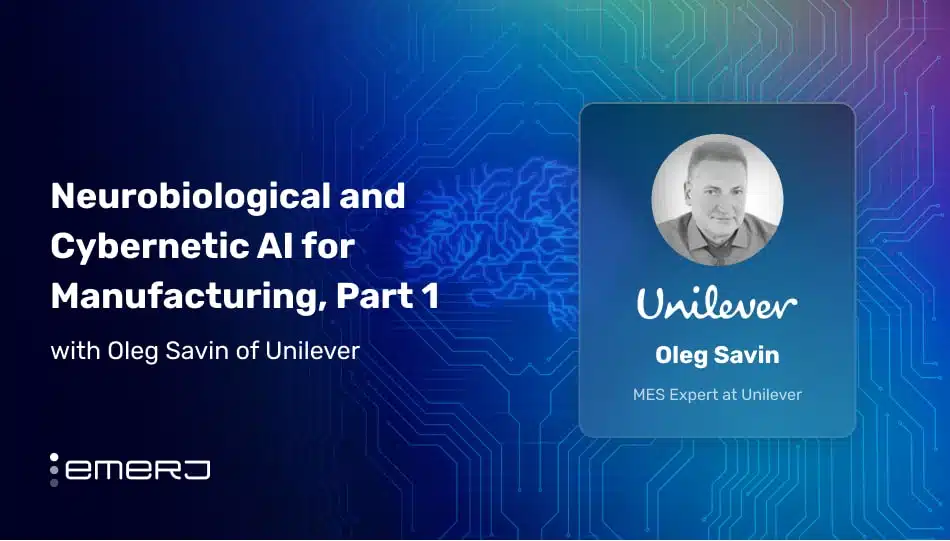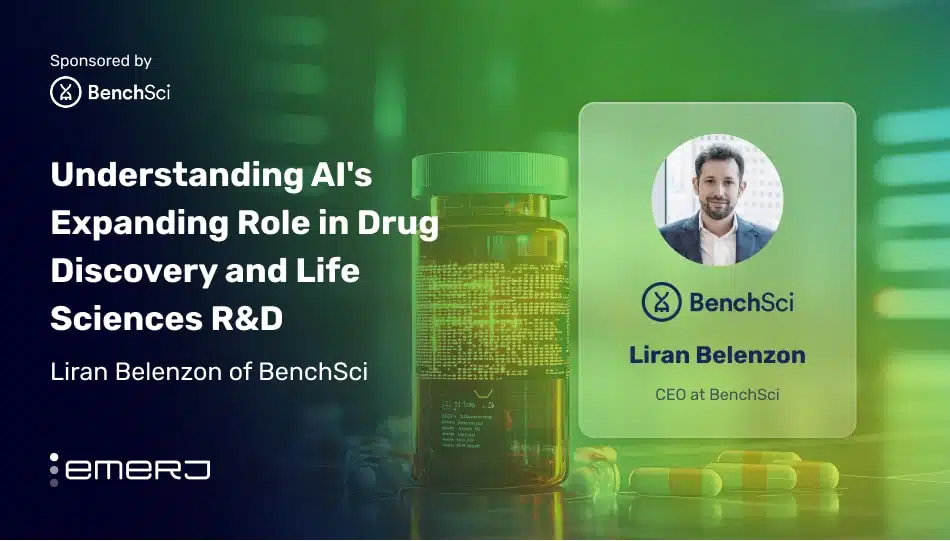The healthcare industry has experienced several changes in recent decades. The Health Insurance Portability and Accountability Act (HIPAA), signed into law in 1996, represents one such change. HIPAA was initially intended to simplify how healthcare is administered. However, the law also contributed to the increased administrative burden for healthcare practitioners.
The consequences of healthcare administrative burdens are well-known. The move to consumer-centric healthcare, combined with the advent of electronic health record (EHR) technology, has also increased the administrative burden.
The targeted use of AI has the potential to ease some of those administrative burdens, even though we are not yet at that stage. As Leo Barrella, CTO of Takeda, recently told Emerj on an upcoming episode of the ‘AI in Business’ podcast, “I think in the life cycle of AI being used for healthcare, it’s still an art more than a science.”
Focusing on the customer journey has permeated many industries, including healthcare, and the emphasis now is on creating a lifetime experience with customers. Even though patients are not customers by regulatory and ethical standards, successful healthcare organizations still must provide quality experiences — in many cases, as if they were customers — to achieve optimal patient outcomes.
The healthcare sector is already leveraging AI in multiple ways, including answering prescription-related questions related to drug availability or cost-effective alternatives and finding on-call physicians to schedule appointments. Improvements in AI can expand those use cases.
Emerj Senior Editor Matthew DeMello recently sat down to talk with Dr. Nele Jessel, Chief Medical Officer at athenahealth, on the ‘AI in Business’ podcast about how AI can help compensate for these inefficiencies to optimize the patient experience.
This article will focus on three key takeaways from our interview with Dr. Nele Jessel:
- Optimizing caretaker workflows with available non-AI technology: Using existing standard medical office technology to achieve enhanced patient interactions and reduced provider burnout by reducing or removing administrative distractions.
- Reducing software training: Using ambient voice technology to enable medical providers to order tests and retrieve clinical information hands-free through voice commands, decreasing burnout and maximizing direct time with patients.
- Streamlining administrative tasks and inefficiencies: Using machine learning to curate abundant information in EHR systems and surfacing those curated points at optimal times in the clinician’s workflow to facilitate better medical decisions.
Listen to the full episode below:
Guest: Dr. Nele Jessel, Chief Medical Officer, athenahealth
Expertise: Pediatrics, identifying clinical workflow gaps, healthcare enterprise management, regulatory compliance
Brief Recognition: Dr. Nele Jessel is a board-certified Clinical Informaticist and Pediatrician. After beginning her career as a pediatrician, Dr. Jessel began at athenahealth, serving on their advisory board in 2013 as the owner of Bridgewater Pediatrics, LLC, a private practice she started in 2011. From 2014 to 2021, Dr. Jessel worked at various healthcare organizations in different leadership positions for clinical informatics before starting as Chief Medical Officer at athenahealth.
Optimizing Caretaker Workflows with Available Non-AI Technology
Healthcare looks very different than it did a couple of decades ago. Nele highlighted some of the main ways that healthcare has changed, including:
- The fact that healthcare is moving to a more consumer-centric model
- New care models in healthcare
- New regulatory requirements
- Ease of access to information due to electronic health records
Nele explains, “In today’s world, every organization really has to strive to deliver high-quality care with optimal patient outcomes at the lowest possible cost and deliver a first-rate patient experience.”
She goes on to describe how organizations are tasked with balancing patient experiences while reducing burnout among healthcare providers and support staff. Athenahealth aims to achieve this by embracing technology that optimizes how clinicians work.
Nele mentioned multiple factors that have increased the administrative burden in healthcare, including:
- Use of electronic health record technology
- New payment models
- New regulatory requirements
- Increased transparency
- New care models
Dr. Jessel also acknowledges that the healthcare industry is behind other comparable sectors regarding technology. She speculates that could be because there is no comparable industry to healthcare, partly because it’s the only industry with no direct transaction between the provider and patient.
Regulatory requirements contribute to various intermediaries of sorts. There is also the issue of trust that doesn’t affect other industries.
According to Dr. Jessel, the current legacy electronic health records (EHR) system is not where it should be. She explains that EHR was created to facilitate billing and payment, not to facilitate clinical care.
Nele sees technology as a solution to the increased administrative hurdles the healthcare industry faces:
“While I do agree that technology is contributing to the burden today, I also firmly believe that technology ultimately will be the solution and not just AI. I think AI has significant potential to alleviate and mitigate some of those current administrative burdens and frustrations with technology. But I also think that basic technology, without even throwing AI into the mix, will get significantly better over the next couple of years.”
– Athenahealth Chief Medical Officer Dr. Nele Jessel
High-value interactions with healthcare providers depend on the right amount of face-to-face time with the provider. Nele thinks achieving a seamless patient experience and appropriate outcomes depends on removing administrative distractions from the clinical workflow by appropriately leveraging technology.
Reducing Software Training
Athenahealth uses AI-powered voice assistant technology to reduce time on documentation. Ambient voice technology allows athenhealth’s providers to talk to applications similar to how consumers speak to their in-home devices to check the weather forecast or turn on music. Their solution is called athenaOne Voice Assistant and is powered by Nuance.
Ambient voice technology allows athenahealth’s providers to interact with their software to accomplish various things, including the following:
- Order an MRI for a patient
- Retrieve the last consult note
- Navigate to a specific section in a patient’s chart
By using the AI-powered voice assistant technology to achieve the above, providers save time by reducing the amount of clicking they need to do. Another benefit of voice assistant technology is that providers no longer need to take time to learn how to navigate the software.
Athenahealth provides these features in their mobile application as well. Nele describes how speech recognition ultimately helps to reduce the documentation burden.
Nele anticipates that the next phase of using ambient voice technology will allow providers to signal to the AI that they are conducting a history and physical examination, and the generative AI capabilities would be able to produce a summary of that exam in a standardized format.
Dr. Jessel fully acknowledges that it will be a challenge to train a model to produce an accurate summary in a formal document that maintains the critical points but omits unnecessary details from small talk that occurs during exams.
Uncovering Hidden Administrative Burdens on the Patient Experience
Physicians and other healthcare providers have an abundant, sometimes overwhelming, amount of patient data available to them. The data comes from many sources, including activity monitors, digital devices, and EHR systems. The real benefit in healthcare occurs when relevant information is contextualized and surfaced, and machine learning models can help achieve that.
Nele mentions the difficulties that we, as customers, experience in banking and financial services, including the problem of getting a live person on the line after accessing an excess number of menu options.
Nele anticipates that, in the coming years, organizations will use an AI chatbot to alleviate staffing shortages and further leverage the remaining nurses and healthcare providers. However, she thinks we are still far from being able to leverage AI as a copilot in healthcare settings.
When asked about the resemblance of these workflows to what we’re seeing in AI-enhanced customer journeys in the financial services sector, Dr. Jessel recognizes that most banking scenarios are not that urgent. In contrast, in healthcare settings, patients might be experiencing more urgent scenarios, and any delay would negatively impact the patient experience.
For example, she does foresee an AI chatbot eventually helping triage incoming patient questions and routing them to the appropriate healthcare provider.
She acknowledges that the patient experience is crucial to the overall medical experience. Also, she believes companies need to leverage data to shed light on challenges that might not occur to them as affecting the patient experience.
Patient surveys provide valuable data for identifying problems in these areas. For instance, if a patient quickly finds a parking spot when they arrive for chemo treatment, that won’t impact their ability to achieve remission. Still, it could set a better tone for higher-value interactions with care providers later in the day.
Nele described how improved interoperability has resulted in ease of access to information. Nele recognizes that the 21st Century Cures Act will lead to even more data entering the patient chart via EHR systems.
She sees AI and machine learning as having the most significant impact in curating information. In differentiating what these capabilities bring to the table, Dr. Jessel concludes with, “AI can help decipher and contextualize large amounts of data and actually surface it at the right point in the clinician workflow in a way that allows clinicians to make a quick assessment of what the data is and how they have to incorporate it into the clinical care of their patients.”


















